It Is In Our Collective Interest To Live In Peace, Buhari Tells Nigerians
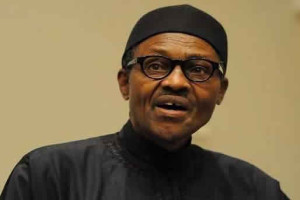
President Muhammadu Buhari has reminded Nigerians that it is in their collective interest to leave in peace with one another.
In his Easter celebration a message to Christians in the country, President Buhari recalled that the message of Easter is filled with themes of love, faith, sacrifice, dedication, commitment, fulfilment of prophecy, hope, expectation and victory, as espoused in the Scriptures and the teachings and lifestyle of Jesus Christ.
According to him, Easter signifies the triumph of good over evil, light over darkness, redemption over condemnation, and hope over despair, adding that commemoration of this special season in Christianity, is always preceded by fasting, piety, humility, penance and prayers of intercession in the build up to the death of Jesus Christ on Good Friday, an event which reunited man with his Creator.
“As we celebrate yet another Easter, I urge all Nigerians to live peacefully with one another and do their utmost to make Nigeria a beautiful place to reside.
“It is in our collective interest to live in peace because without peace, no meaningful and sustainable development can take place. Lack of peace in one part affects in one way or the other, all parts of the country. Our people must rediscover the values of peaceful co-existence, social justice, religious tolerance, dignity of labour and patriotism.”
The President called on Nigerians to keep faith in the determination and ability of his administration to change the Nigerian story for the good of all.
He reminded the citizenry that in the almost two years of his administration, it had worked hard to meet the expectations of Nigerians by improving security, especially in the North-East, sustaining the campaign against corruption and had taken steps to revitalize the economy.
“We are determined as never before to continue with the fight against terrorism and insurgency; sustain the peace in the Niger Delta through engagements with stakeholders; and restore peace and stability in other parts of the country.” [myad]


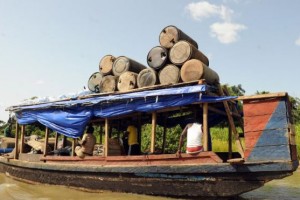
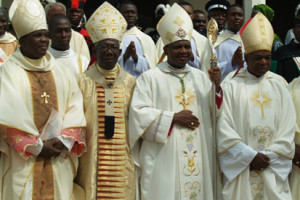

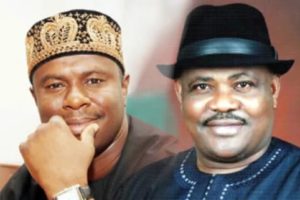



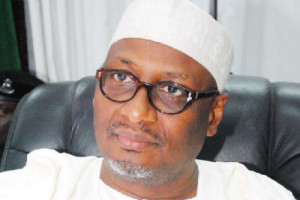

The Roots Of Indian Racism, By Tabish Khair
Politicians who are unwilling to concede that Indians can be racist usually also refuse to accept that there is caste prejudice in India
There are Indian politicians who believe that there is no racism in India. Nothing that happens — most recently, the attacks on Nigerian students in what is basically a suburb of Delhi — can convince them otherwise. Of course, many of us who have African, black British, or African-American friends and acquaintances cannot understand this blindness on the part of such politicians.
Speaking personally, I know that I absolutely dread it when my black European friends or acquaintances announce that they plan to travel in India, particularly north and central India. I cringe at the thought of the experiences they might return with and what impression of my country, which also has so many things and people to admire, will remain with them. Because I know from having travelled with black Europeans and spoken to Africans in India, and from overhearing some of my fellow Indians, that we Indians can have more prejudices about Africans than most white Europeans today.
But there is another group of friends and acquaintances from Europe whose excursions to India, particularly north and central India, I dread almost as much. These are white, especially light-haired or blonde, women. Once again, I have travelled with them in India, and have experienced how some Indians behave and what they say (snide or public comments), which luckily my female companions, not knowing Hindi, stayed blissfully ignorant of.
Remnants of the past
Some of this has to do with colonial discourses which have seeped into India: for instance, the 19th century racist European association of Africa with cannibalism. After all, the mobs that attacked Nigerian students in Noida recently were ‘convinced’ that the Africans had ‘cannibalised’ an Indian student, who reportedly died of drug overdose.
Similarly, the groping and verbal sexism that many blonde women tourists encounter is partly the result of bad Hollywood films and similar trash, through which ordinary urban Indians encounter the ‘West’. Knowing porn and not Plato, triteness and not Twain, their reactions to Western women are essentially sexist and racist. This is exacerbated by the tendency in many conservative circles, so surprising given our proclaimed spirituality, to consider the material covering a woman’s body to be an indication of her soul and morality!
However, it does not do to put all the blame on our colonial inheritance or its neocolonial cultural ramifications. The main reason why such prejudices predominate in Indian caste circles has to do with internal reasons. As a nation, we are yet to face up to the racism and sexism that runs through many caste narratives. Before the British brought us stories of ‘African’ cannibalism, we had our own stories of cannibalism — associated, from classical texts down to some current Chitra comics, with dark-skinned, non-‘Aryan’-looking creatures. Similarly, the way we have often treated aboriginal women in India — partly because their dress codes and social mores differ from mainstream Hindustani (Hindu, as well as Muslim) ones — is simply shocking.
With some lower middle and middle castes riding the government’s ‘backward castes’ bandwagon for economic and other reasons, we tend to forget that the worst of internal prejudice in India has been traditionally aimed at ‘dark’ Dalits and dark-skinned aborigines (‘tribals’, not as much at castes like the largely ‘fair-skinned’ Yadavs or Ansaris). This has not changed substantially even today.
Different shades of racism
However, racism, unlike what some politicians believe, is not always a matter of colour; it is any kind of discrimination based on the false association of superficial physical differences — skin colour, shape of lips, hair, etc — with moral and intellectual qualities. However, it is also true that skin colour became its dominant index from the 18th century onwards, mostly because many Europeans wished to ‘justify’ the brutal enslavement of Africans.
Despite this link between skin colour and racism, one can argue that other kinds of racism have also existed. A major Irish novelist recently referred to the Irish as “the niggers of Britain”. What he meant was that in the 17th century, tens of thousands of Irish prisoners were sold to English settlers in the new world as slaves. As late as the early 20th century, with skin colour taking over, some English scholars were arguing that the Irish were related to “negroes” and not to the English — despite both the English and the Irish seeming indubitably ‘white’ to us.
There is an argument that the English worked out their initial theories of racism on the Irish before, in tandem with other Europeans, applying them on dark-skinned people, like many Africans. If so, one can argue that we Indians have worked out — and continue to work out — our racism and racism-tinged sexism on our aborigines and Dalits. It is not surprising that politicians who are unwilling to concede that Indians can be racist usually also refuse to accept that there is caste prejudice in India. [myad]